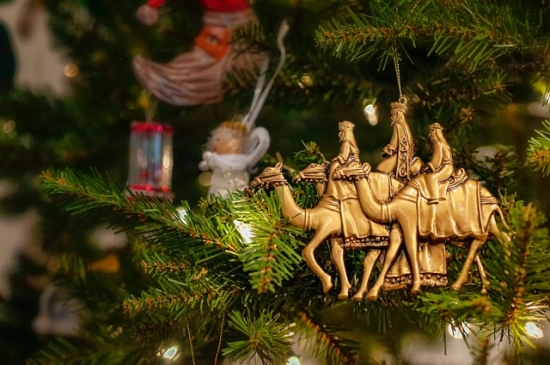9373. Come up unto Jehovah. That this signifies conjunction with the Lord, is evident from the signification of “coming up,” as being to be raised toward interior things (see n. 3084, 4539, 4969, 5406, 5817, 6007), consequently also to be conjoined (n. 8760). That it denotes conjunction with the Lord, is because by “Jehovah” in the Word is meant the the Lord, (n. 1343, 1736, 1793, 2004, 2005, 2018, 2025, 2921, 3023, 3035, 5663, 6280, 6303, 6905, 8274, 8864, 9315). A secret which also lies hidden in the internal sense of these words, is that the sons of Jacob, over whom Moses was the head, were not called and chosen; but they themselves insisted that Divine worship should be instituted among them (according to wh at has been said in n. 4290, 4293); and therefore it is here said, “and He said unto Moses, Come up unto Jehovah,” as if not Jehovah, but another, had said that he should come up. For the same reason in what follows it is said that “the people should not go up” (verse 2); and that “Jehovah sent not His hand unto the sons of Israel who were set apart” (verse 11); and that “the appearance of the glory of Jehovah was like devouring fire on the top of the mountain in the eyes of the sons of Israel” (verse 17); and lastly that Moses, being called the seventh day, “entered into the midst of the cloud.” For by “the cloud” is meant the Word in the letter (n. 5922, 6343, 6752, 6832, 8106, 8443, 8781); and with the sons of Jacob the Word was separated from its internal sense, because they were in external worship without internal, as can be clearly seen from the fact that now, as before, they said, “all the words which Jehovah hath spoken we will do” (verse 3); and yet scarcely forty days afterward they worshiped a golden calf instead of Jehovah; which shows that this was hidden in their hearts while they were saying with their lips that they would serve Jehovah alone. But nevertheless those who are meant by “the called and the chosen” are those who are in internal worship, and who from internal worship are in external; that is, those who are in love to and faith in the Lord, and from this in love toward the neighbor.
Camel


In Genesis 24:10, 64, this signifies in general worldly knowledge in the natural man. (Arcana Coelestia 3046, 4104)
In Jeremiah 49:32, this signifies memory-knowledges used to confirm truths or falsities. (Apocalypse Explained 417[7])
A camel (Matthew 22:24) signifies scientific knowledge.
(References: Arcana Coelestia 3048, 10227)
Apocalypse Explained #735
735. Michael and his angels fought with the dragon, and the dragon fought and his angels, signifies the combat between those who are for the life of love and charity and for the Divine of the Lord in His Human, against those who are for faith alone and faith separate and are against the Divine of the Lord in His Human. This is evident from the signification of "Michael and his angels," as being those who are for the Divine of the Lord in His Human, and for the life of love and charity (of which presently); also from the signification of "the dragon," as being those who are for faith alone and separated from the life of love and charity, and also against the Divine of the Lord in His Human. That those who are in faith separated from charity, which faith is called faith alone, are meant by "the dragon," has been shown above (n. 714-715, 716).
The same are also against the Divine of the Lord in His Human, that is, against the Divine Human, because most of those who have confirmed themselves in faith alone are merely natural and sensual, and the natural and sensual man separated from the spiritual can have no idea of the Divine in the Human, for they think of the Human of the Lord naturally and sensually, and not at the same time from any spiritual idea; therefore they think of the Lord in the same way as they think of an ordinary man altogether like themselves, and this they also teach; consequently in the idea of their thought they set the Divine of the Lord above His Human, and thus they altogether separate those two, namely the Divine and the Human of the Lord; and this they do although their doctrine, which is the doctrine of Athanasius respecting the Trinity, teaches otherwise, for this teaches that the Divine and Human are a united person, and that the two are one like soul and body. Let any one of them examine himself, and he will perceive that such is their idea respecting the Lord. From this it is clear what is meant by "Michael and his angels" who fought with the dragon, namely, those who acknowledge the Lord's Divine Human and are for the life of love and charity, for they who are such cannot do otherwise than acknowledge the Divine Human of the Lord, and for the reason that otherwise they could not be in any love to the Lord nor in any charity towards the neighbor thence, since this charity and love are solely from the Lord's Divine Human, and not from a Divine separated from His Human, nor from the Human separated from His Divine; consequently also after the dragon was cast down into the earth with his angels a voice said out of heaven:
Now is come the salvation and the power and the kingdom of our God, and the authority of His Christ (verse 10).
From this it is clear what is meant by "Michael and his angels."
[2] As to Michael in particular, it is believed from the sense of the letter that he is one of the archangels; but there is no archangel in the heavens. There are, indeed, higher and lower angels, also wiser and less wise; and in the societies of angels there are governors who are set over the rest; but yet there are no archangels in obedience to whom others are held by any authority. There is no such government in the heavens, for no one there acknowledges in heart anyone above himself except the Lord only; this is what is meant by the Lord's words in Matthew:
Be not ye called teacher, for one is your Teacher, Christ, but all ye are brethren. And call no man your father on earth, for one is your Father, who is in the heavens. Neither be ye called masters, for one is your Master, Christ. He that is greatest among you shall be your minister (Matthew 23:8-11).
But by those angels that are mentioned in the Word, as "Michael" and "Raphael," administrations and functions are meant, and in general, limited and certain departments of the administration and function of all the angels; so here "Michael" means that department of angelic function that has been referred to above, namely, the defense of that part of the doctrine from the Word that teaches that the Lord's Human is Divine, and that man must live a life of love to the Lord and of charity towards the neighbor that he may receive salvation from the Lord, consequently that department of function is meant that is for fighting against those who separate the Divine from the Human of the Lord, and who separate faith from the life of love and charity, and who even profess charity with the lips but not in the life.
[3] Moreover, in the Word "angels" do not mean angels in the spiritual sense, but Divine truths from the Lord (See above, n. 130, 302), for the reason that angels are not angels from what is their own [proprium], but from the reception of Divine truth from the Lord. It is the same in respect to archangels, who signify that Divine truth, as has been said above. Angels, moreover, in the heavens do not have such names as men on earth have, but they have names expressive of their functions, and in general, to every angel a name is given according to his quality; this is why "name" signifies in the Word the quality of a thing and state. The name Michael means, from its derivation in the Hebrew, "who is like God;" therefore Michael signifies the Lord in relation to that Divine truth that the Lord is God even as to the Human, and that man must live from Him, that is, in love to Him from Him, and in love towards the neighbor. Michael is mentioned also in Daniel 10:13, 21; 12:1, and signifies there like as here the genuine truth from the Word, which will be for those who are of the church to be established by the Lord; for "Michael" means those who will favor the doctrine of the New Jerusalem, the two essentials of which doctrine are, that the Human of the Lord is Divine, and that there must be a life of love and charity.
[4] Michael is also mentioned in the Epistle of Jude in these words:
Michael the archangel, when contending with 1 the devil he disputed about the body of Moses, durst not pronounce a sentence of blasphemy, but said, The Lord rebuke thee (Jude 1:9).
This the apostle Jude quoted from ancient books that were written by correspondences, and by "Moses" in those books the Word was meant, and by his "body" the sense of the letter of the Word; and as the same persons are meant here by "the devil" as are meant in Revelation by "the dragon," which is also called "Satan" and "the devil," it is evident what is signified by "Michael, contending with the devil, disputed about the body of Moses," namely, that such falsified the sense of the letter of the Word; and because the Word in the letter is such that it can be distorted by the evil from its genuine sense, and yet can be received by the good according to its meaning, it was said by the ancients, from whom these words of Jude were quoted, that "Michael durst not pronounce a sentence of blasphemy." (That in the spiritual sense "Moses" signifies the law, thus the Word, may be seen in Arcana Coelestia 4859 at the end, 5922, 6723, 6752, 6827, 7010, 7014, 7089, 7382, 8787, 8805, 9372, 9414, 9419, 9429, 10234, 10563, 10571, 10607, 10614.)
Footnotes:
1. The Latin has "de," which means "about."






